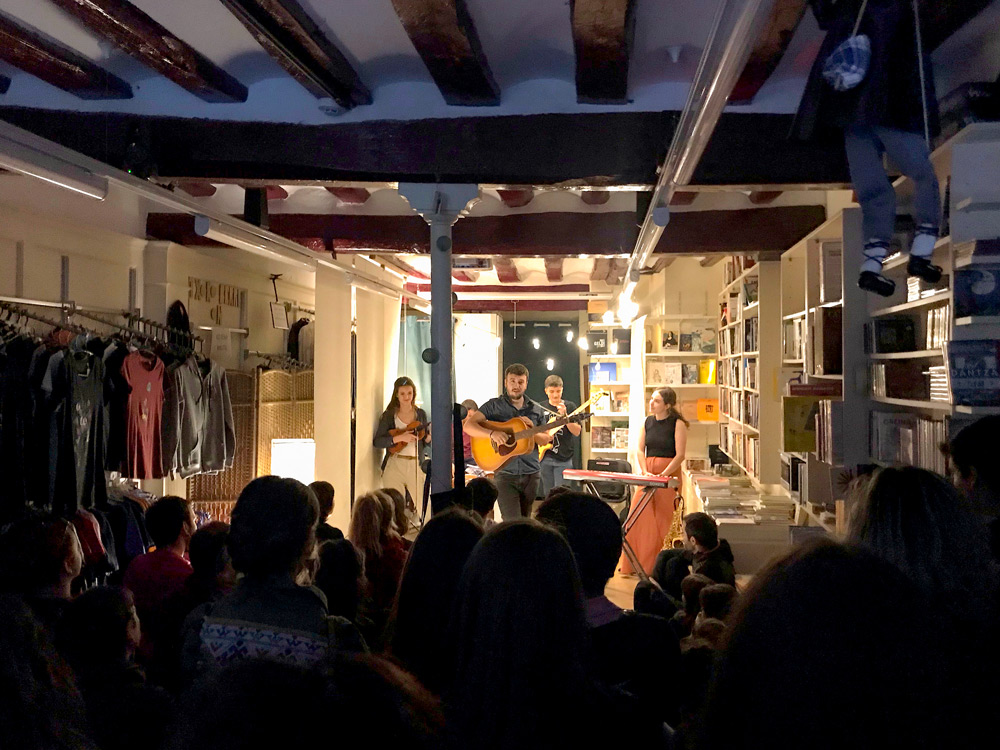
- I left, I did not leave, I hesitated. On the first Friday of June, with the plan and the desire to be among the four walls. But nevertheless, there was something that pushed me to the concert. I hadn't heard them before (hard, it was the band's third public handover), but I knew them and I knew they brought something good. Something that tells you that if you leave you won't regret. So we agreed with a friend (in a couple of beers) and approached Karrikiri.

At the door were the family and friends of the group members, as well as the fans of the Basque culture of Iruñea, which is not in vain the nucleus and the column for the Basques and Euskaltzales of the city of Karrikiri. Inside, between books and clothes of all life, the hanging bulbs of the roof illuminated the improvised stage, the floor that the Sound of Words usually uses for concerts. There was no microphone, there were no speakers. They started the concert in three voices in front of an audience that could not accommodate one more person: We've been full of drugs, we're ready and you're where you are, the road has started and get out, it's late, but in time. I don't know if it would be late, but in time. When hasn't taken the guitar, the saxo and the violin in time to call bass and drums and take the road? They also knew that they would always be on time.
If we undress, it's easier to write Sarrionandia once. And it seems that Ibil Bedi's colleagues also believe it. Without amplifiers, Amets, Ibai, Areta, Javi and Eder came to our ears with a raw sound. No plug-in, no wall building between music and the public. With a naked voice, but also to undress the bowels ere.Hasiera-from the beginning made it clear that it was a family concert. They explained the starting point for each of the songs and encouraged listeners to ask questions. The result: intimate atmosphere, excited public and eight songs, as Amets said, sung more from the loss than from the people, from the truth, sometimes bitter but without an excessive drama, raw and simple like life. And two beautiful versions of Itoiz and Balerdi Balerdi Balerdi, created before these young people, and especially those that put the listeners of over one age to dance. Friday afternoon was no longer needed.
And as I write this, it's been a few days since I heard the concert (even more so, since I heard another concert), and during that time, Ibil Bedi has pulled his head into the musical landscape of Euskal Herria. I haven't had a hard time spending Friday night in Karrikiri, and now you hear eight songs on my room speakers over and over again. Circulate!